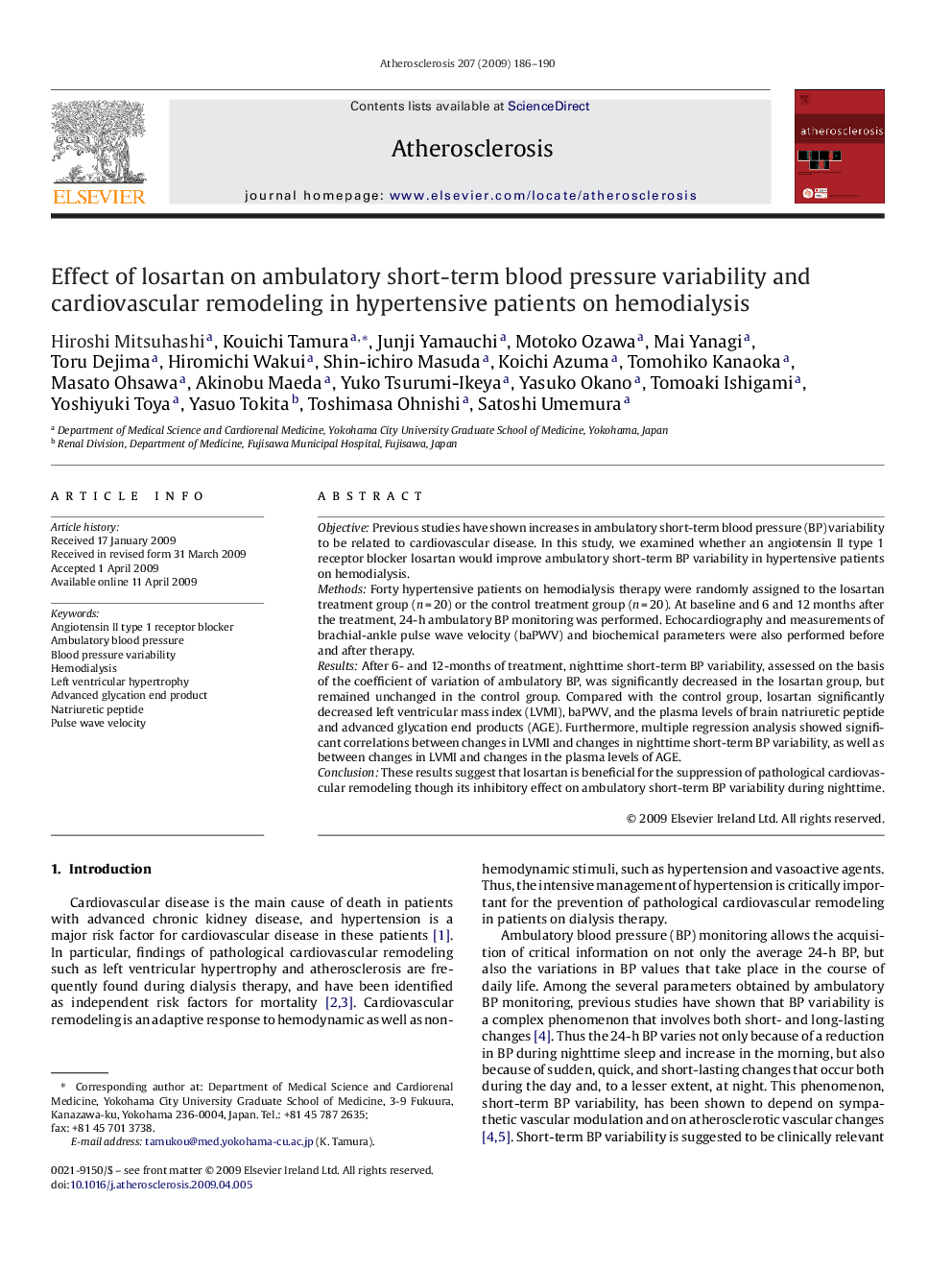| Article ID | Journal | Published Year | Pages | File Type |
|---|---|---|---|---|
| 2893876 | Atherosclerosis | 2009 | 5 Pages |
ObjectivePrevious studies have shown increases in ambulatory short-term blood pressure (BP) variability to be related to cardiovascular disease. In this study, we examined whether an angiotensin II type 1 receptor blocker losartan would improve ambulatory short-term BP variability in hypertensive patients on hemodialysis.MethodsForty hypertensive patients on hemodialysis therapy were randomly assigned to the losartan treatment group (n = 20) or the control treatment group (n = 20). At baseline and 6 and 12 months after the treatment, 24-h ambulatory BP monitoring was performed. Echocardiography and measurements of brachial-ankle pulse wave velocity (baPWV) and biochemical parameters were also performed before and after therapy.ResultsAfter 6- and 12-months of treatment, nighttime short-term BP variability, assessed on the basis of the coefficient of variation of ambulatory BP, was significantly decreased in the losartan group, but remained unchanged in the control group. Compared with the control group, losartan significantly decreased left ventricular mass index (LVMI), baPWV, and the plasma levels of brain natriuretic peptide and advanced glycation end products (AGE). Furthermore, multiple regression analysis showed significant correlations between changes in LVMI and changes in nighttime short-term BP variability, as well as between changes in LVMI and changes in the plasma levels of AGE.ConclusionThese results suggest that losartan is beneficial for the suppression of pathological cardiovascular remodeling though its inhibitory effect on ambulatory short-term BP variability during nighttime.
